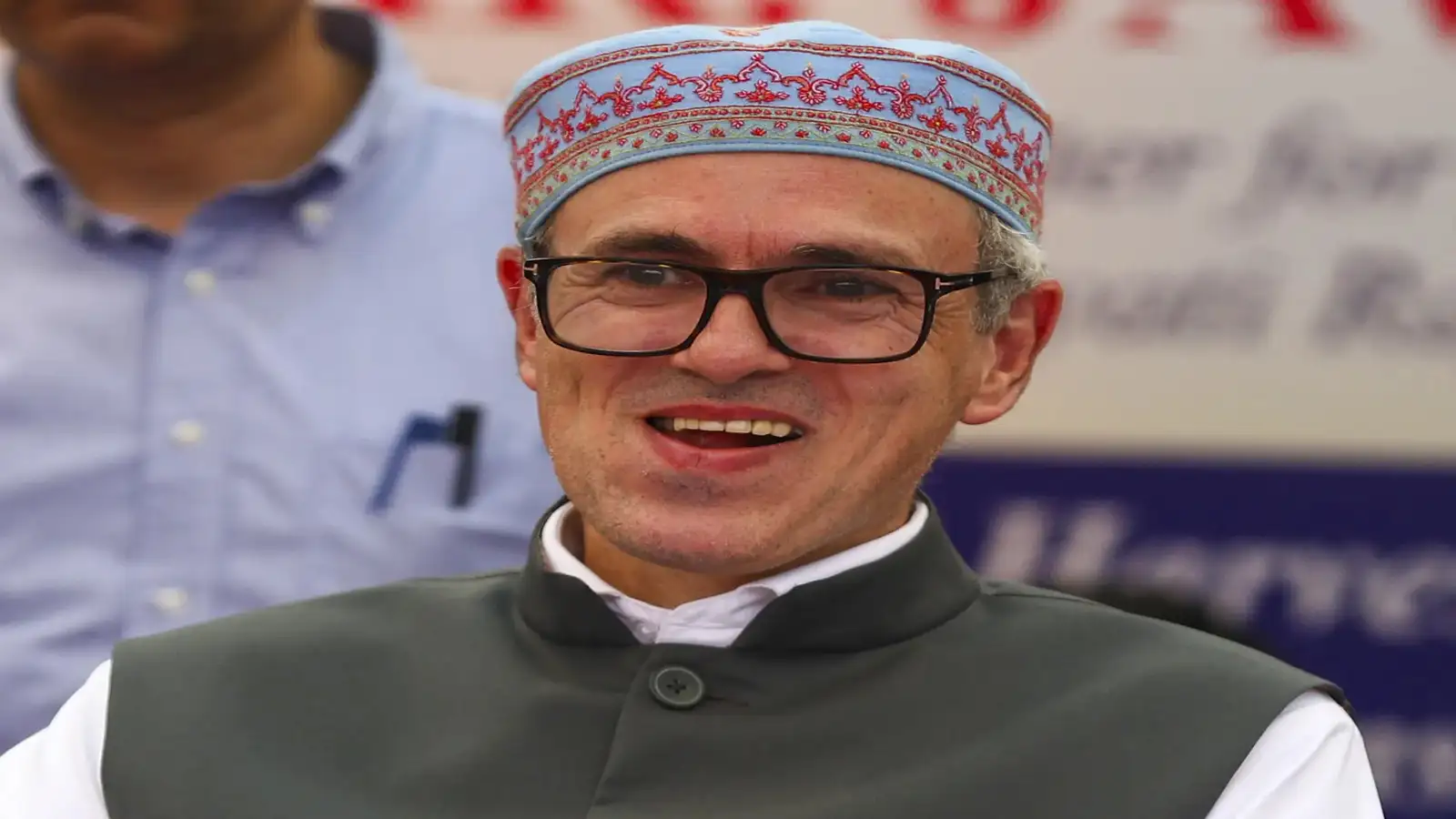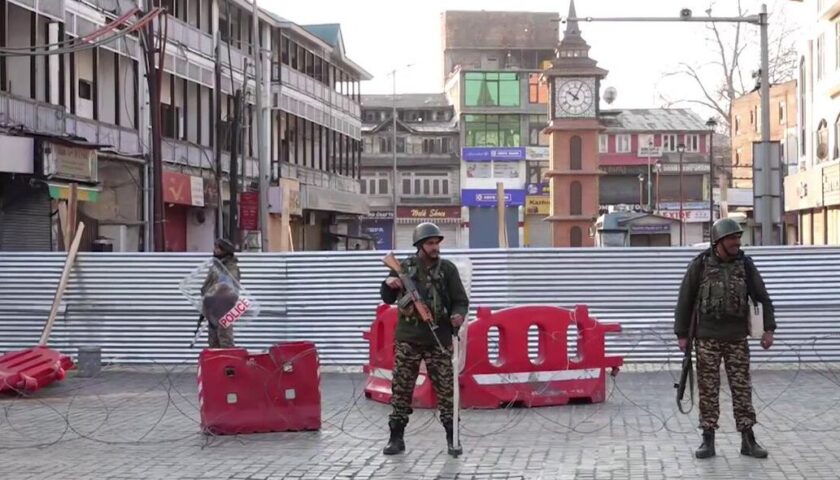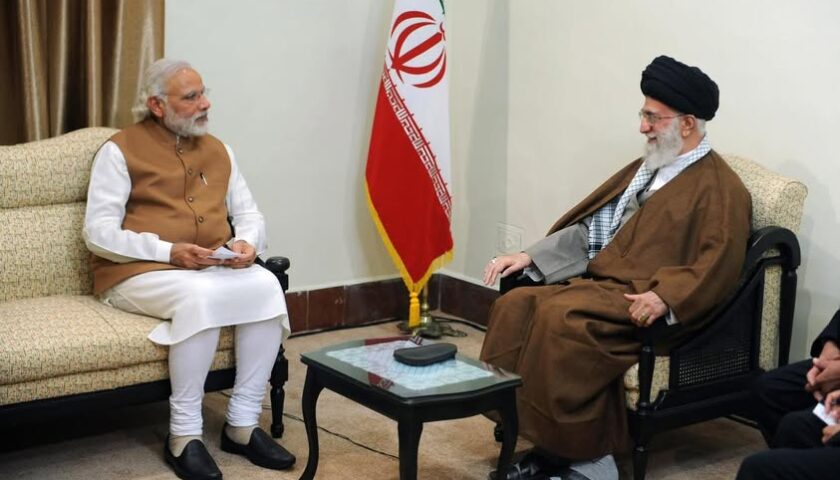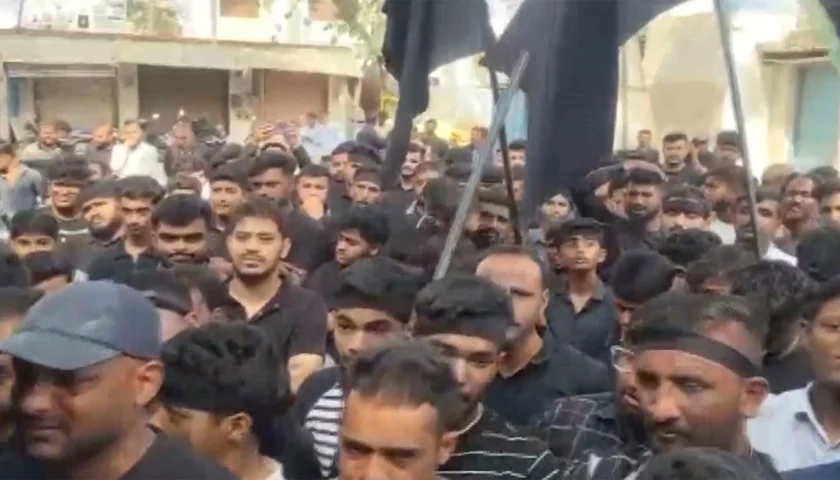Omar Abdullah Under Fire as NC’s Poll Promises Stall, FAT School Takeover Fuels Kashmir Anger
By: Javid Amin | 24 Aug 2025
From Hope to Reckoning
When Omar Abdullah’s National Conference (NC) returned to power in 2024, after five turbulent years of central rule, it was billed as a new dawn for Jammu & Kashmir’s politics. Riding high on the promise of restoring dignity, rights, and autonomy, the NC campaigned on an ambitious manifesto—the “12 Guarantees.”
But as Omar completes one year in office, disillusionment has begun to creep in. The 12 Guarantees remain largely unfulfilled, while the recent takeover of 215 schools affiliated with the banned Jamaat-e-Islami (JeI) and its Falah-e-Aam Trust (FAT) has inflamed public opinion and sparked criticism from all major opposition parties.
Instead of consolidating authority, the NC finds itself defensive and embattled—accused of being too weak to deliver on promises, and too compliant with Delhi’s dictates.
The 12 Guarantees: A Scorecard of Stalled Promises
The NC’s manifesto was designed to inspire hope after years of uncertainty. But reality has proven far more complex.
01. Restoration of Article 370 and Full Statehood
-
Promise: Lead the fight to restore J&K’s special status and press for immediate statehood.
-
Reality: Article 370 remains constitutionally revoked. The Centre has ignored both political appeals and the Supreme Court’s December 2023 directive to restore statehood “as soon as possible.”
02. Repeal of the Public Safety Act (PSA)
-
Promise: Scrap a law long criticized as draconian.
-
Reality: PSA detentions continue. Delhi insists on retaining it as a counterterrorism tool, limiting NC’s ability to act.
03. Release of Political Prisoners
-
Promise: Free all political detainees held since 2019.
-
Reality: Only a handful have been released. High-profile leaders remain detained or restricted under security grounds.
04. Transfer of Hydro-power Projects
-
Promise: Return of key hydro projects from central PSUs to J&K to boost revenue.
-
Reality: No transfer has occurred. Negotiations have stalled, with the Centre unwilling to loosen control of strategic assets.
05. Free 200 Units of Electricity
-
Promise: Relief for ordinary households.
-
Reality: Power shortages and rising tariffs continue; the scheme remains unimplemented due to budgetary constraints.
06. Dignified Return of Kashmiri Pandits
-
Promise: Facilitate safe, voluntary return of Pandit families displaced since the 1990s.
-
Reality: Security conditions and lack of political consensus have stalled progress.
07. Easing Passport Verifications
-
Promise: End punitive delays caused by past police reports.
-
Reality: While some cases have been streamlined, reports of denial and harassment continue.
08. End Unjust Terminations of Govt Employees
-
Promise: Stop the LG administration’s dismissal of staff on “security” grounds.
-
Reality: Terminations continue, undermining Omar’s credibility.
(Other guarantees—like agricultural subsidies, unemployment schemes, and healthcare reforms—have seen partial announcements but limited delivery.)
📝 Scorecard Summary:
Of the 12 guarantees, none stand fully delivered. Analysts note Omar’s government has been “symbolic” while real power remains centralized in Delhi.
The FAT School Takeover: Why It Became Explosive
Perhaps the sharpest controversy has been the government takeover of 215 FAT schools.
Background
-
The Falah-e-Aam Trust (FAT) was an educational wing linked to the banned Jamaat-e-Islami (JeI).
-
Despite the ban, FAT schools had long been tolerated, providing affordable education—especially in rural Kashmir.
-
With over 50,000 students enrolled, they represent a critical segment of J&K’s education network.
The Government Order
In mid-August, the NC-led government announced that these schools would be taken over and placed under temporary management.
-
Principals of nearby government schools were tasked with oversight.
-
Official justification: to ensure continuity, prevent ideological radicalization, and align institutions with state education standards.
Political Backlash
-
Mehbooba Mufti (PDP):
Condemned the move as an “attack on identity and institutions”, accusing NC of carrying out the BJP’s agenda under Delhi’s pressure. -
Sajad Lone (People’s Conference):
Called it “shameful”, saying the elected government was now executing policies once reserved for LG rule. -
Altaf Bukhari (Apni Party):
Suggested regulation—not takeover—was the better path. -
Justice & Development Front (JDF):
Branded it a betrayal, comparing it to the 1987 rigging episode that scarred Kashmir’s political memory.
Education Minister’s Clarification
Sakina Itoo tried damage control:
“The order has been distorted. Schools will be temporarily overseen until new management bodies are set up.”
But the clarification failed to quell anger. Critics argue the move will:
-
Disrupt student education.
-
Erode community trust in institutions.
-
Deepen perceptions of NC’s powerlessness to resist Delhi-driven policies.
Delhi’s Shadow: Who Really Governs J&K?
At the heart of both stalled promises and the school controversy lies a fundamental reality:
-
Delhi retains ultimate control over J&K’s political and security apparatus.
-
The NC’s government functions within a narrow corridor of autonomy.
-
Sensitive issues—security, education policy linked to JeI, employment terminations—are dictated or influenced by the Centre.
This has led many to argue that Omar Abdullah is more a caretaker than a Chief Minister, caught between Delhi’s imperatives and voter expectations.
Voices from the Ground
Students & Parents
Many families see the FAT schools as affordable, accessible education. A parent from Pulwama told local media:
“If these schools close or change suddenly, where will our children go? Government schools are overcrowded.”
Teachers
A teacher in Anantnag described the takeover as “humiliating”, saying it stigmatizes educators by association.
Youth
For Kashmir’s young, the episode feeds into a broader sense of disempowerment. As one Srinagar college student put it:
“We voted for change. What we see is the same LG-style governance in another form.”
Opposition Strategy: United Against NC?
The FAT schools issue has given opposition parties a rare moment of unity.
-
PDP, PC, Apni Party, and smaller groups have all aligned in criticism.
-
This could create the nucleus of a “joint opposition” strategy for upcoming local elections.
-
Some analysts argue this may be the first real test of NC’s ability to retain its dominance.
Wider Implications
-
Identity Politics: Targeting JeI-linked schools risks being framed as an assault on Kashmir’s identity.
-
Governance Crisis: NC’s inability to fulfill manifesto promises undermines its legitimacy as a governing force.
-
Federalism in Question: The imbalance between Delhi’s control and Srinagar’s limited autonomy raises deeper constitutional questions.
-
Youth Disillusionment: Unmet promises and controversial decisions risk fueling alienation among Kashmir’s younger population.
Conclusion: Omar’s Year of Reckoning
Omar Abdullah began his term with lofty promises of dignity, rights, and restoration. A year later, he finds himself cornered—unable to deliver on guarantees, and blamed for policies like the FAT school takeover that erode community trust.
This first year in office has been less about reform and more about reckoning. Omar faces the classic dilemma of J&K leaders in the post-2019 era:
👉 How to govern meaningfully when real authority rests in Delhi?
For now, the NC remains in power—but its credibility is under siege, its promises unfulfilled, and its future uncertain.




